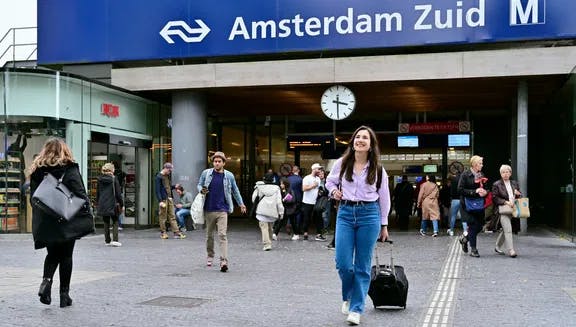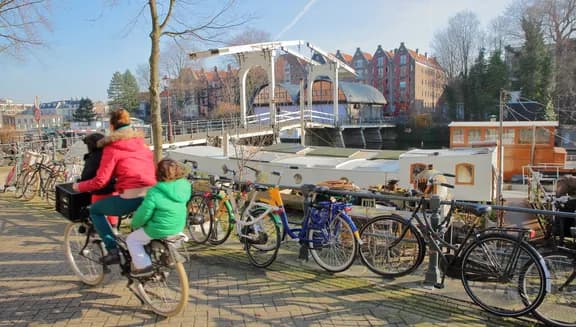
30% tax ruling
What is the 30% ruling?
The 30% reimbursement ruling (also known as the 30% facility) is a tax benefit for highly skilled migrants moving to the Netherlands for a specific employment role. If the necessary conditions are met, the employer can grant a tax-free allowance equivalent to 30% of the gross salary subject to Dutch payroll tax. This reimbursement is intended as compensation for the costs that international employees incur when moving to a new country for their work.
The 30% ruling could previously be applied for a maximum period of five years. Any employees who began using the facility prior to 1 January 2024 are still eligible for the full five years. If the starting date is on or after 1 January 2024, the tax-free percentage will be reduced from 30% to 27% from 1 January 2027.
How is the 30% ruling applied?
The 30% ruling means that 30% of the gross salary can be paid out tax-free as a non-taxable allowance. This is intended to cover the additional costs an international employee incurs when working and living in the Netherlands. The most common way this scheme is applied is by reducing the employee’s gross salary by 30%. In return, the employee receives a tax-free allowance of 30%. This keeps the employer’s wage costs at the same level but allows the employee to take home more net income.
However, the employer is not obliged to pass on the financial benefit of the ruling to the employee. The employer could keep part or all of the benefit for the company.
Decrease to 27% allowance
As of 1 January 2024, the 30% ruling has been adjusted, with the tax-free allowance set to decrease to 27% from 1 January 2027.
This change only applies to employees who started using the 30% ruling on or after 1 January 2024. Employees who were already benefitting from the ruling before 2024 will continue to receive 30% of their gross salary tax-free for the full five-year period.
The 30% facility only applies to a salary maximum set by the Standards for Remuneration Act, which limits top salaries in the public and semi-public sectors. As of 1 January 2024, the salary portion that is eligible for the 30% ruling is capped at €233,000 per annum. This means employees using the 30% ruling can receive a maximum tax-free allowance of €69,900, provided the ruling applies for the full year. If the ruling is only applied for part of the year, the maximum allowance is prorated based on the number of months the employee is eligible.
Another change is that previously, employees benefitting from the 30% ruling could opt for ‘partial non-residency status’, meaning they were considered to be non-resident taxpayers regarding the ‘box 2’ (tax on any substantial interests) and ‘box 3’ (income from wealth, including savings, shares and a second home) parts of their tax return. This partial non-residency status is abolished as of 1 January 2025.
Am I eligible for the 30% ruling?
If you are an international recruited from abroad for a position in the Netherlands, you must meet the following conditions in order to qualify for the 30% ruling:
- You must be an employee – To be eligible for the 30% ruling, you have to be employed. If you are self-employed, it is not possible to claim the 30% ruling. However, if you set up a legal entity, a Dutch BV for instance, and become an employee of that company, you are considered to be in an employment situation and consequently may be eligible for the 30% ruling.
- You and your employer must agree in writing that the 30% ruling is applicable – The application for the 30% ruling must be agreed on by both employer and employee. If the 30% ruling is applicable fully, your gross salary will be reduced by 30%. This may have implications for your potential unemployment or disability benefits since these benefits are based on your taxable salary. Therefore the tax authorities require that both employer and employee are aware of these consequences. This agreement in writing can be included as a clause in your employment contract or as an addendum to it.
- You must transfer or be recruited from abroad – It is only possible to claim the 30% ruling if you are transferred or recruited from abroad. You must prove that you were residing outside the Netherlands before you began your present employment in the Netherlands. In addition, you must have lived a distance of more than 150 km from the Dutch border for more than 16 months out of the 24 months prior to your first working day in the Netherlands.
- You must have specific experience or expertise that is rarely or not at all available in the Netherlands – These skills are determined by several factors such as salary, age, employment history, education and level of employment. None of these factors are conclusive on their own but the combination of all aspects determines your specific skills. At present, the specific skills are assumed to be present if the minimum salary requirement is met (see below).
- Your gross salary has to exceed a minimum amount (adjusted annually) – In 2024, the annual taxable salary for an employee (after the deduction of 30%) must exceed €46,107. For employees under 30 with a Dutch master’s degree or an equivalent foreign degree, the salary threshold is €35,048. Salary thresholds are updated each year on 1 January.
- Exemptions from the minimum salary requirement – No minimum salary is required for scientific researchers, employees working in scientific education or doctors in training. Please note that there are restrictions regarding the companies or institutions for which this group of employees can work.
How does the 30% ruling work in practice?
Here are two examples of how the 30% ruling works in practice:
- You are 35 years old and earning a salary of €100,000. After taking into account the 30% ruling your taxable salary will be €70,000. This meets the minimum salary requirement so you will receive a tax-free allowance of €30,000.
- You are 35 years old and earning a salary of €50,000. If the 30% ruling was applied, your taxable salary would be €35,000. Because this amount is lower than the minimum salary requirement, applying the 30% ruling in full is not permitted. The ruling can only be applied to the difference between the fiscal annual wage and the minimum salary.
How is ‘salary’ defined in the context of the 30% ruling?
Your ‘regular employment income’ is the basis for calculating the 30% tax-free reimbursement. As of 1 January 2024, the maximum salary eligible for the 30% ruling is capped at €233,000 per annum. Any income earned above that is ineligible for the tax-free allowance. There are special regulations regarding pension premiums, but your bonus, holiday allowance, benefits package and company car all fall under the ruling. Severance payments do not fall under the 30% ruling definition of ‘regular employment income’ and therefore do not qualify for the 30% tax-free option. If you are made redundant, it is important that you have a breakdown of the redundancy package so it can be determined which amount is your bonus and outstanding holiday allowance and which amount is the actual severance payment.
Are there other benefits?
If you have a non-EU driving licence, you will in most cases have to retake the driving test in order to obtain a Dutch licence. However, if you benefit from the 30% ruling, you can switch your foreign driving licence to a Dutch one without retaking the test.
How long does the 30% ruling apply?
The maximum duration of the ruling is five years for applications that were approved after 1 January 2019. For applications approved on or after 1 January 2024, the tax-free allowance will be reduced to 27% from 1 January 2027. Prior to these changes, applications approved between 1 January 2012 and 1 January 2019 had a maximum duration of eight years.
Is there a retroactive period?
The 30% ruling becomes effective retroactively if the application is submitted within four months after starting your employment (and subsequently approved). If your application is submitted after four months, it will become effective as of the first day of the month following the month of application. The time you have already resided in the Netherlands will be subtracted from the total duration the ruling is applicable.
What if I change jobs?
If you change jobs, you can apply for a continuation of the ruling if you still meet the conditions regarding specific skills and you start the new job within three months of terminating the previous one.
How do I apply for the 30% ruling?
Typically, it is the employer who is responsible for applying for the 30% ruling on your behalf.
- This can be done directly with the Dutch Tax Office (Belastingdienst). The tax office will respond to your application within 10 weeks.
- Please note that while the IN Amsterdam team is happy to advise on tax rulings and guide you through the process, the actual application and detailed information can only be provided by the Dutch Tax Office.
- If you require further guidance or consultation, we recommend consulting a tax advisor or lawyer. Review the list of trusted service providers available to assist with this process.
Can I apply or reapply if I start my own business?
If you are employed in the Netherlands and have qualified for the 30% ruling, it is possible to start your own business and keep the benefits of this scheme. To do so, the the new business should take the legal form of a BV or payroll company, of which you become a salaried employee. The BV or payroll company must then apply for the 30% ruling on your behalf. Keep in mind that you must sign an employment contract with the BV or payroll company within three months of leaving your previous employer in order to maintain your eligibility for the 30% ruling.
Find out about other official procedures to take care of when moving to the Netherlands.
Stay informed
Since 2012, the 30% ruling has undergone several changes, including a reduction in duration from 10 to 8 years, and then to 5 years. Upcoming adjustments will also affect the maximum remuneration and minimum salary requirements. As further changes may occur within your employee's 5-year period, it is advisable to consult a tax adviser or specialist to stay informed.
For regular updates for internationals in the Amsterdam Area, sign up for our monthly newsletter. Each month we’ll keep you in the know with a handpicked selection of helpful articles, invitations to events, opportunities to meet other internationals and tips for making Amsterdam your new home.
✔ A guide to events and activities in English
✔ Invitations to free info sessions and workshops
✔ News updates affecting international residents
✔ Tips for relocation and living in the Netherlands
✔ Stories from Amsterdam and the region
Related articles

Highly skilled migrants

Importing and exporting cars

Cars and driving licences

Registering in the Amsterdam Area

Orientation year permits for graduates and researchers

How to protect your personal details and BSN: defending against spoofing and scams

Births, deaths and marriages

Moving to Amsterdam as an international

Residence permit
